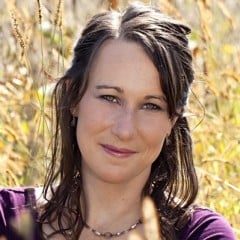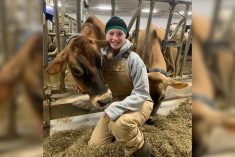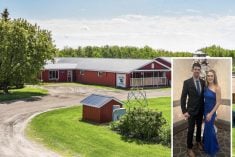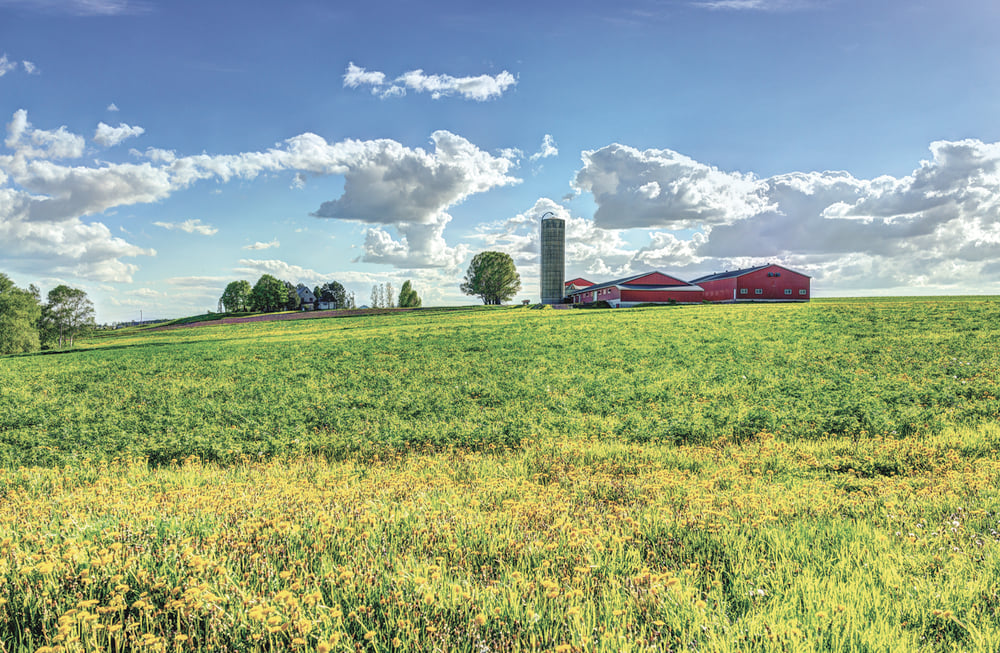Wrong turns are part of steering any business to success, as are some unexpectedly bumpy roads. There is no such thing as a perfect roadmap, with the upshot that many young farmers suffer indecision along the way, and some even abandon their course at times.
All the same, the story of Lookout Holsteins and Jerseys in North Hatley, Que. doesn’t include any time spent looking in the rear-view mirror.
Read Also

Five reasons why you avoid farm bookkeeping
Bookkeeping for the farm business might not be anyone’s favourite chore, but staying on top of it can help your farm access the funds it needs to grow.
When they started farming together in 1988, Callum McKinven and Katherine Beerwort were newlyweds without any significant worldly possessions. Callum had grown up on a farm that was well known within the Jersey-breeding world, but it had been inherited by his brother.
Katherine came from a large family that had also experienced great success – as Holstein breeders — but that property also passed into the hands of a brother.
What they did have was a mutual love for cows and a mutual determination that the lack of a place to house some cows wouldn’t slow them down. They searched and found a farm with some quota that was available for rent in Donnan, Que. and started buying young stock.
“We started off with a bang,” Callum fondly recalls. “One year after that first year that we started, we had the most all-Canadian nominations for Holsteins in the country.”
They quickly built name recognition for Amlaird, a herd name chosen to honour Callum’s father’s farm back in Scotland and everything seemed on track. But then, four years into a great start, their lease on the Donnan farm came up.
The couple found a little place they could afford to buy not far from Richmond, Que., but it didn’t come with quota.
Buying a dairy barn without quota is hardly a recommended practice in the dairy industry. For most farms, it would be classed as not exactly a bright move. But the couple had already calculated that their collective expertise was in producing great cows, not necessarily milk.
- More ‘Dairy’ from Country Guide: Heritage on the move
Callum had “the eye,” what his dad had called his ability to forecast the potential of a cow based on her looks and heritage. Already making great inroads into the cattle-judging world, the couple developed a business plan that — unlike most in the dairy sector — had little to do with staying put.
“A lot of stuff gets done when I’m judging shows,” Callum explains. “It gets me to a lot of places and I make a lot of contacts.” He says he’s judged as many shows as anyone he knows, and it’s taken him to 28 different countries so far.
The benefit to the business has been the vast clientele list he developed in his travels. Not that this was his conscious objective. Callum will tell you he was just appreciating good cattle and sharing his mutual passion with other breeders, which naturally led to making friends.
“For example, I might judge a show and make a cow first in her class or champion, and after the show, I’d go into the barn and buy her.” If the asking price was more than his budget would allow, but still fair, then he’d call a friend who would appreciate the animal the way he did and ask them to partner with him.
Callum says as a result, he moved quite a few famous cows in and then out of their little barn, including one World Dairy Expo winner. And again, the couple seemed to be on a winning path.
It’s hard to believe, then, with so much going in the young couple’s favour, this behaviour would lead to the end of Amlaird.
Gerald Halbach, a dentist living in Arizona, had bought a lot of show animals from Callum and Katherine. In 2003, he came to Quebec for a visit. “Gerald had got the notion of maybe trying to own a place up here, and we just happened to be driving that afternoon when this place was just put up for sale,” recalls Callum.
Located only one kilometre from the farm where Callum had grown up, the place that they called The Lookout had deteriorated. At one time, it had been a popular spot for family picnics and “parking,” and the farmer who owned it used to let Callum collect bottles off the grounds. But now it was run down.
Callum confided to his dad that he was saving the money he made to buy The Lookout someday.
Hearing the story, Halbach asked Callum, “Why don’t we buy this and start from scratch?”
By 9 a.m. the next morning, the deal was done. A new prefix was adopted to reflect the new partnership and to acknowledge the property’s history. “We sold the other place, bought quota, and started to be real farmers,” Callum exclaims.

Even with an investor now on board and the opportunity to secure milk production revenue, the business stayed true to the couple’s original vision. “I’ve always figured if you’re going to do something, do what you love,” Callum says.
Unlike the large free-stall barns and the automatic feeding and milking systems that were being erected around the same time, the facility built at Lookout Farms was an old-fashioned tiestall barn that would only allow for 30 cows to be milked. They didn’t even install automatic takeoff units — now embraced by dairy farms across the country — because Katherine still prefers a more hands-on approach to udder care.
They also made the unconventional decision to purchase all the farm’s feed — hay and grain included — so they could dedicate all their land to pasture.
- From the Canadian Cattlemen: You can learn a lot about grazing yearlings from a dairy man
“This farm would not survive on just a milk cheque,” Callum says. “We didn’t have the machinery and the land area for the crops, so when I pencilled it all out, it was better to buy all the feed rather than rent land and buy machinery.”
Every second year the couple formally reviews the way they run their business, but their practice of setting short-term goals and carefully evaluating how they spend their time is just as important.
Though he’s home more than he used to be, Callum still gets around to other farms four or five times a week. At home, Katherine and their three daughters care for 160 head, several of which are high-pedigreed heifers bound for big-time show rings, and there’s a development plan to be carefully followed for most of them.
Unlike many modern dairy farms which have diversified over the last five years, the goal at Lookout is the opposite of the popular “be in and out of the barn as quick as you can” philosophy. “I’m not mechanically minded, my love is working with cows and it’s my wife’s love as well, so we focus on that because that’s what we feel will make us money,” Callum says.
None of this is to say that specializing an operation is the only way to go, though. Callum assures me that the year BSE shut down the live cattle sale business, reducing their $2 million in gross revenue by more than 99 per cent, he was grateful for a monthly milk cheque.
All three daughters hope to continue participating in the farm in the future, though Callum believes the oldest two are right to pursue careers that allow them more versatility. He’s pleased they’re applying the lessons they’ve learned on the farm in their own ways.
“Whether you’re a farmer or running a different kind of business, your clientele’s first impression is everything,” Callum says, offering as an example: “We go the extra step to make sure people are impressed when they come here, right down to the Facebook page. My daughter’s really picky about putting good pictures on it.”
It’s just one of many ways customer experience is emphasized in this family. To ensure those impressions are lasting, any one of the family members may offer full disclosure to a potential buyer on an animal’s faults, may discourage a purchase which could prove to be a wrong fit with the buyer, and will likely offer a satisfaction-or-your-money-back guarantee.
Callum says that it has always been a greater goal for him and his family to be reputable business people than to make a quick buck off one-time customers. He says it may not be a strategy that will make them rich, but he believes that as long as they always can have food on the table, keep the bills paid, and live every day to the fullest, they’ll be on the road to success… a road that despite some occasional bumps will have no wrong turns.
















